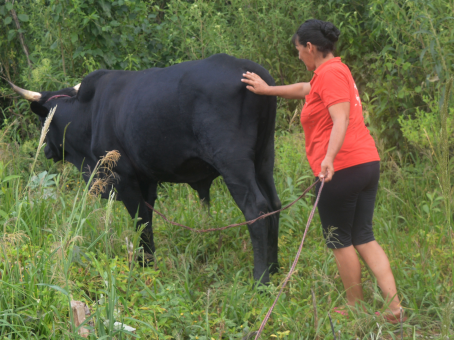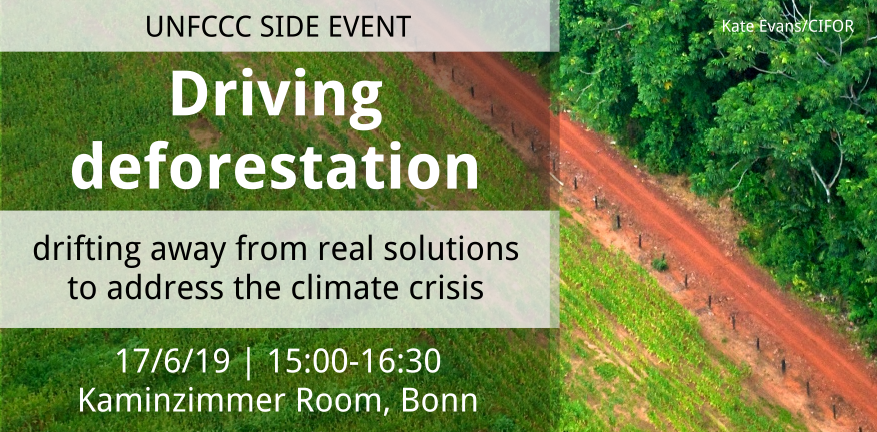Driving deforestation: drifting away from real solutions to address the climate crisis

 The importance that forests and land have to overcoming the climate crisis has been extensively documented, as has the key role that Indigenous Peoples, local communities and women play in protecting and restoring forests and ecosystems. However, policies at the international and national levels still fail to address the main drivers of deforestation and their negative impacts on the environment and society. Instead, flawed and false solutions are flourishing, supported by perverse incentives and subsidies.
The importance that forests and land have to overcoming the climate crisis has been extensively documented, as has the key role that Indigenous Peoples, local communities and women play in protecting and restoring forests and ecosystems. However, policies at the international and national levels still fail to address the main drivers of deforestation and their negative impacts on the environment and society. Instead, flawed and false solutions are flourishing, supported by perverse incentives and subsidies.
Using case studies from producer countries, this side event will discuss local perspectives and experiences of the impacts of some of the commodities that are the main drivers of deforestation, and how perverse incentives for two highly polluting sectors, industrial livestock production and bioenergy generation, drive these impacts. It will also look at alternatives to these industrial production models, such as agroecology and community-led forest restoration. The side event will then cover the key elements of the debate around Article 6 of the Paris Agreement, which could lead to more deforestation through market-based, false solutions to climate change.
Speakers:
- Dil Raj Khanal, The Federation of Community Forestry Users Nepal/FECOFUN
- Erin Biehl, Johns Hopkins Bloomberg School of Public Health (USA)
- Isis Alvarez, Global Forest Coalition (Colombia)
- Peg Putt, Environmental Paper Network International Biomass Working Group (Australia)
- Souparna Lahiri, Global Forest Coalition (India)
Hosted by the Global Forest Coalition, Friends of Siberian Forests and Brighter Green.










